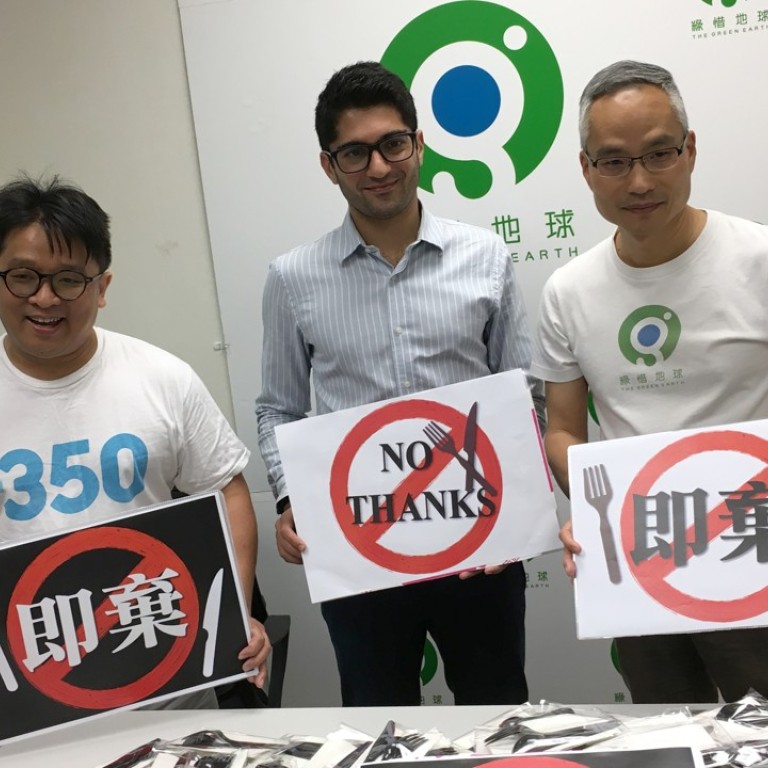
Say no to plastic and help save our planet
The move by some food delivery companies to offer customers the “no disposable cutlery option” when placing online orders is commendable. But unless we join forces to boycott plastic products, other suppliers and retailers have little incentive for a change
A long overdue step has been made to help cut down the city’s plastic waste. We are talking about the commendable move by some food delivery companies to offer customers the “no disposable cutlery option” when placing online orders. Insignificant as it may sound, it is a positive change that goes a long way to saving our planet.
The option is badly needed in the wake of our growing appetite for fast food delivery. Thanks to the intense lobbying by environmental group Green Earth, at least three major operators are giving customers the choice of having their food delivered without disposable cutlery. The green message appears to be well received, with a company saying one -fifth of its customers are using the option. Hopefully, the percentage will pick up with better education and publicity.
The crusade to reduce plastic waste should not be just confined to online orders, though. Hundreds of fast food outlets across the city are all too willing to dish out all sorts of disposable items that are unnecessary. For instance, a cold beverage invariably comes with a plastic straw. Certainly, drinking straight from the cup is just as fine. But most people are not given the choice of doing away with the straw or other plastic wares.
A staggering 154 tonnes of disposable plastic tableware were estimated to have been thrown away every day in 2016, up 17.5 per cent up from the previous year. This is hardly sustainable when our landfills are fast filling up. If the situation does not improve, the government may have to consider following some overseas cities to ban or restrict the use of plastic straws in food outlets.
The same can be said about the overuse of plastic packaging. Most supermarket groceries are often pre-packed in cling film and cases made of plastic or polystyrene foam, leaving consumers with little choice. Unless we join forces to boycott such products, suppliers and retailers have little incentive for a change. By rejecting unnecessary plastic items and packaging, we help instil changes in business practices that are badly needed to protect our environment. Save our planet and say no to plastic wherever possible.

